Professional EMG testing that pinpoints exactly what’s causing your symptoms so you can move forward with confidence.
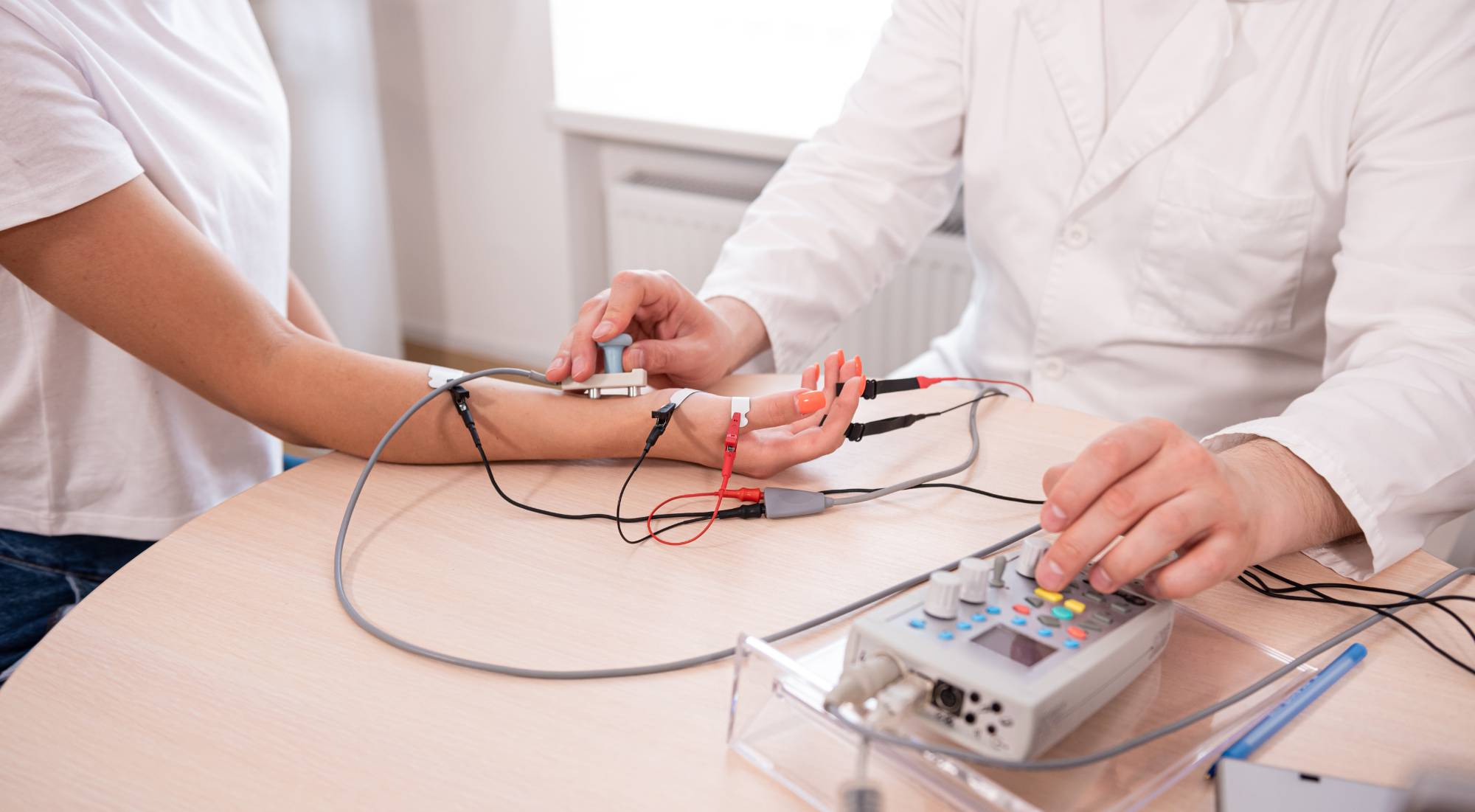
Reviews
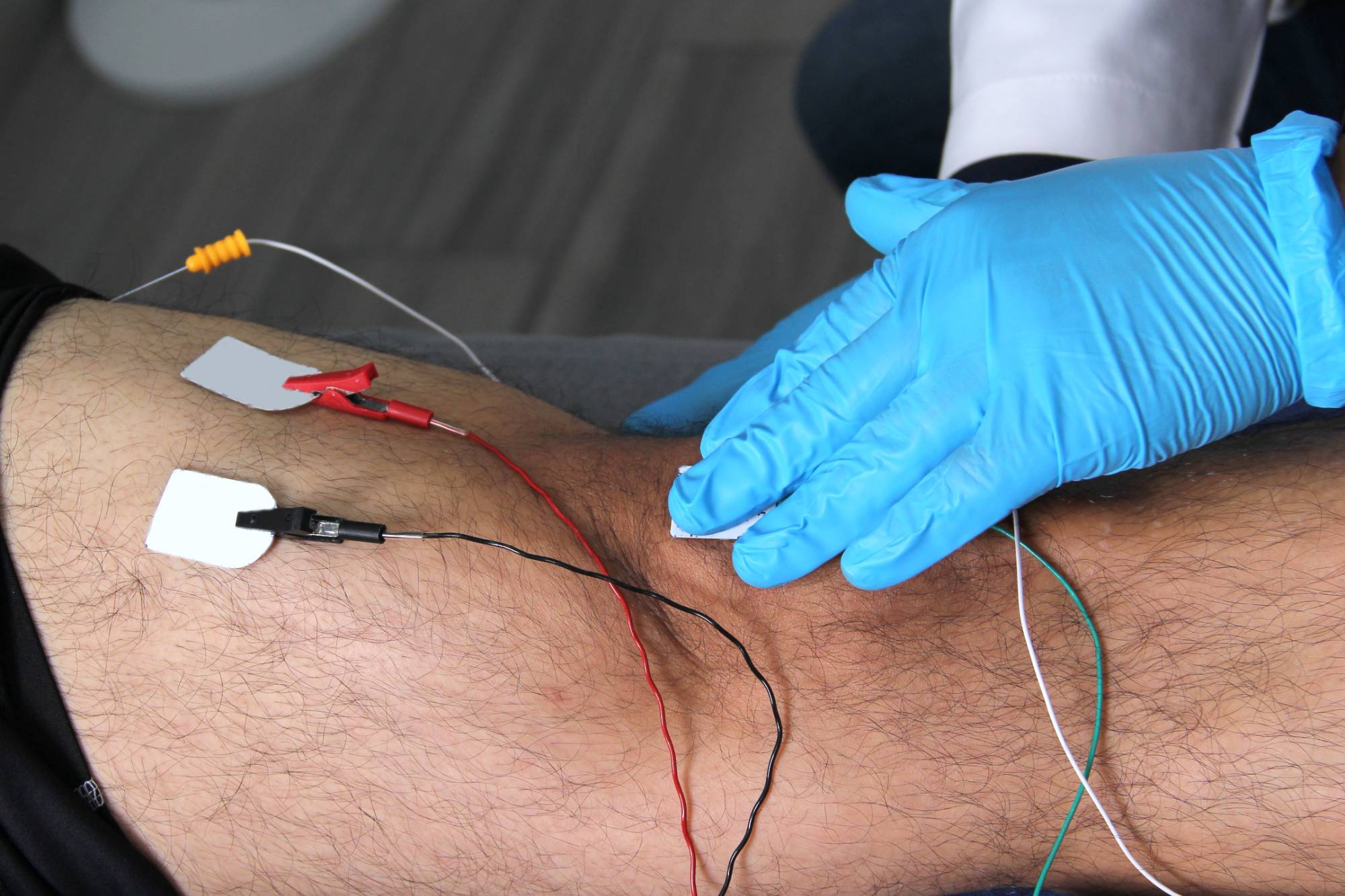
You’ve been dealing with numbness, tingling, or muscle weakness long enough. You need answers, not more guessing games.
EMG testing gives you the diagnostic clarity you’ve been searching for. Within one appointment, you’ll know whether your symptoms stem from nerve damage, muscle disorders, or conditions like carpal tunnel syndrome or sciatica.
No more wondering if your symptoms will get worse. No more trying treatments that might not address the real problem. You’ll walk out with concrete information about your condition and a clear path forward for treatment.
We’ve been serving patients in the Theater District and throughout Manhattan with comprehensive spine and nerve care. Our board-certified physicians specialize in diagnosing complex nerve and muscle conditions using advanced EMG and nerve conduction testing.
We understand that living with unexplained symptoms is frustrating. That’s why we focus on getting you accurate results quickly, then explaining exactly what they mean for your health and treatment options.
Our Theater District location makes it easy to fit testing into your schedule, whether you work in the area or are visiting from elsewhere in the city.
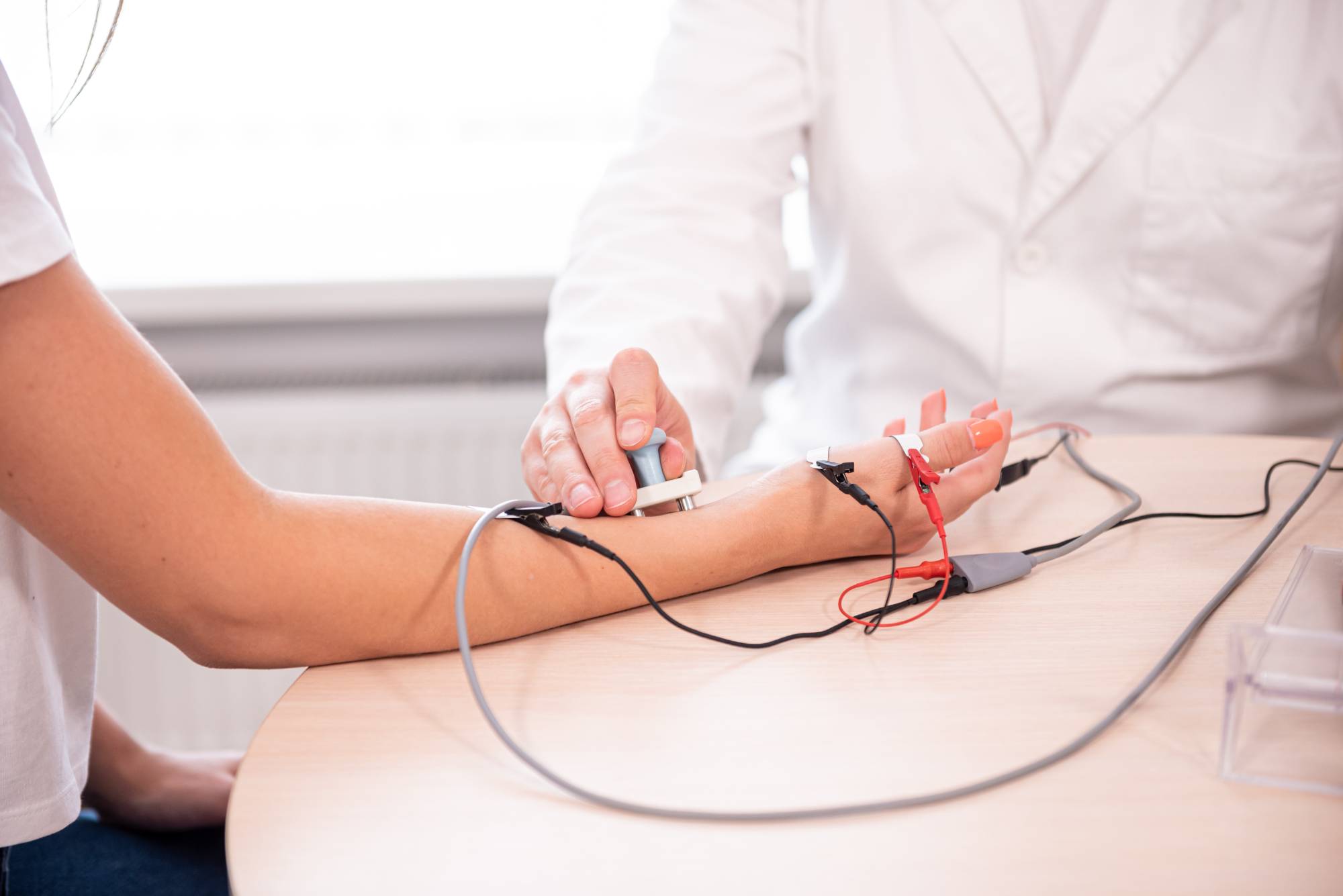
Your EMG test typically takes 30-60 minutes and involves two parts: nerve conduction studies and electromyography testing.
First, we’ll perform nerve conduction studies by placing small electrodes on your skin. We send mild electrical pulses to measure how well your nerves transmit signals. You’ll feel a brief tingling sensation, but nothing painful.
Next comes the electromyography portion, where we insert a thin needle electrode into specific muscles to measure electrical activity. This helps us see how your muscles respond to nerve signals and whether there’s any damage or dysfunction.
Throughout the entire process, we’ll explain what we’re doing and what we’re finding. You’ll receive your results the same day, along with a clear explanation of what they mean for your condition and treatment options.
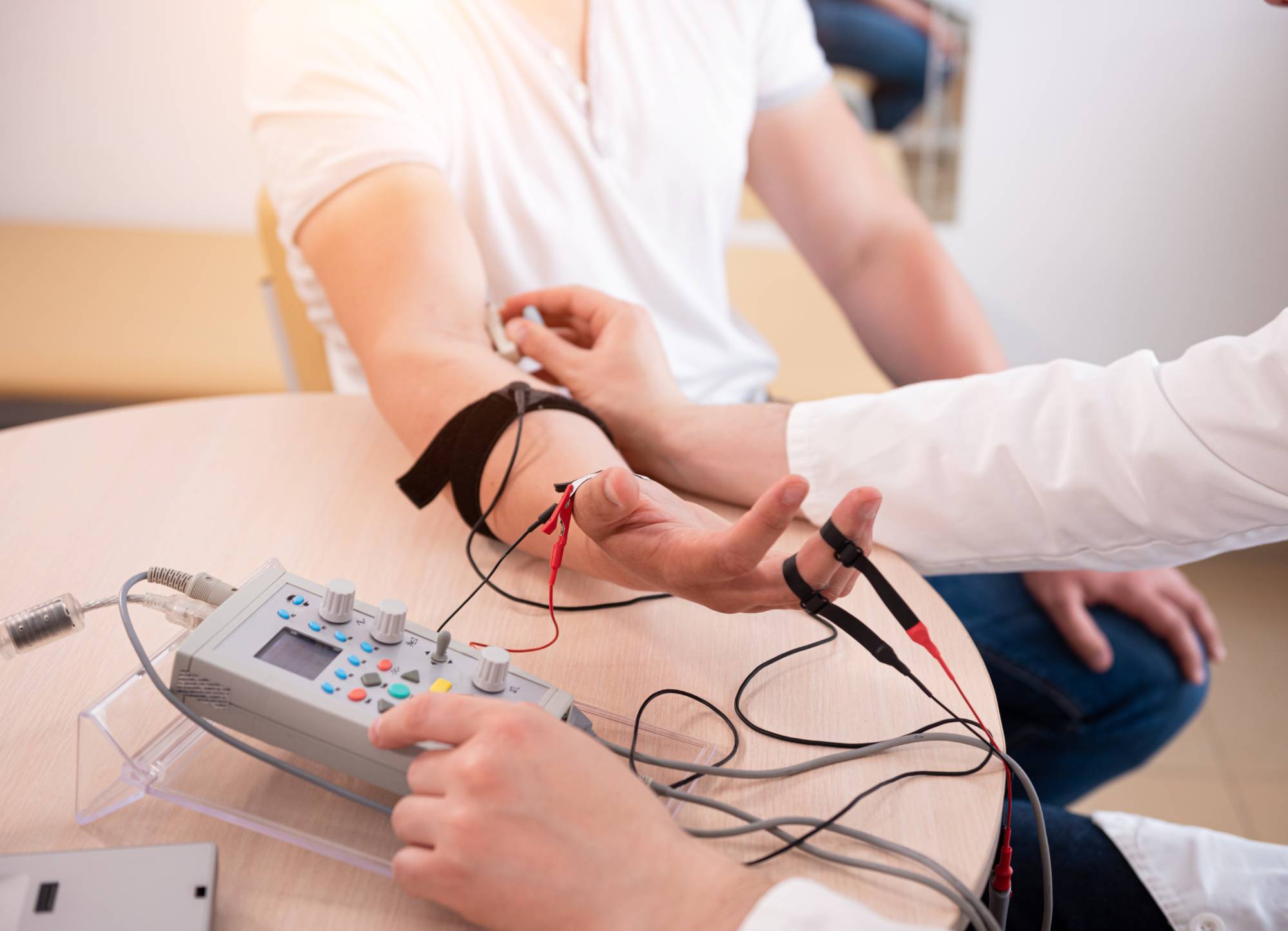
Ready to get started?
Your comprehensive EMG evaluation includes both nerve conduction studies and electromyography testing to give you a complete picture of your nerve and muscle function.
We test multiple nerve pathways and muscle groups depending on your symptoms. This thorough approach means we can diagnose conditions like carpal tunnel syndrome, ulnar neuropathy, radiculopathy, peripheral neuropathy, and various muscle disorders in a single visit.
You’ll receive detailed results that day, along with a written report for your records and referring physician. We also coordinate with your other healthcare providers to ensure your treatment plan addresses the specific findings from your EMG test.
Most insurance plans cover EMG testing when medically necessary, and our staff will verify your coverage before your appointment.
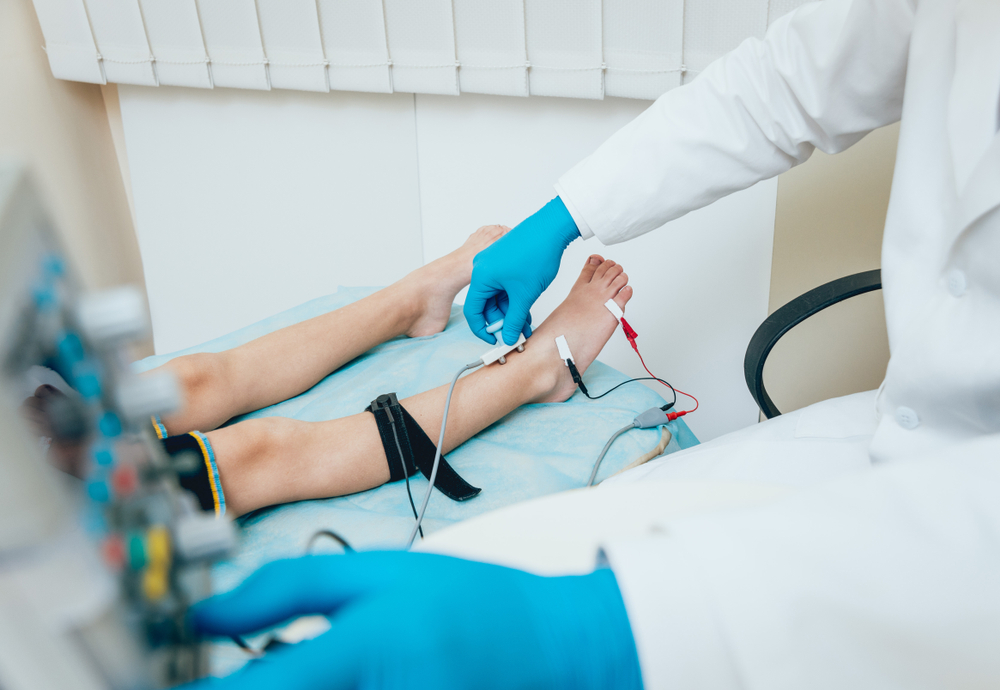
New York:
Florida:
Support